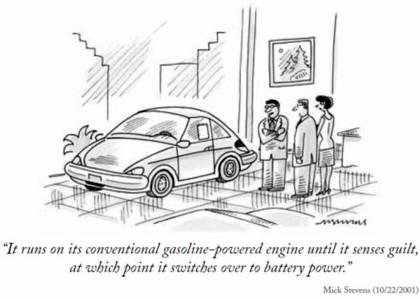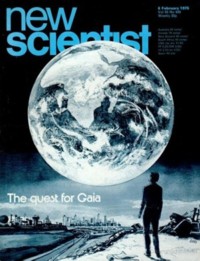Environment

- Details
- Written by: Richard_McKie
- Parent Category: Economy
- Category: Envionment
- Hits: 3436
Electric vehicles like: trams; trains; and electric: cars; vans; and busses; all assist in achieving better air quality in our cities. Yet, to the extent that the energy they consume is derived from our oldest energy source, fire: the potential toxic emissions and greenhouse gasses simply enter the atmosphere somewhere else.
Back in 2005 I calculated that in Australia, due to our burning coal, oil and sometimes rural waste and garbage, to generate electricity, grid-charged all-electric electric cars had a higher carbon footprint than conventional cars.
In 2019, with a lot of water under the bridge; more renewables in the mix; and much improved batteries; I thought it was worth a revisit. I ran the numbers, using more real-world data, including those published by car companies themselves. Yet I got the same result: In Australia, grid-charged all-electric cars produce more greenhouse gasses than many conventional cars for the same distance travelled.
Now, in the wake of COP26, (November 2021), with even more water under the bridge, the promotion of electric cars is back on the political agenda. Has anything changed?

- Details
- Written by: Richard_McKie
- Parent Category: Economy
- Category: Envionment
- Hits: 3481
Our recent trip to Central Australia involved a long walk around a rock and some even longer contemplative drives.
I found myself wondering if there is more or less 'life' out here than there is in the more obviously verdant countryside to the north south east or west. For example: might microbes be more abundant here? The flies are certainly doing well. Yet probably not.
This led me to recall James Lovelock's Gaia Hypothesis that gave we readers of New Scientist something to think about back in 1975, long before climate change was a matter of general public concern.
- Details
- Written by: Richard_McKie
- Parent Category: Economy
- Category: Envionment
- Hits: 2323
We can sum this up in a word:
Hydrogen
According to 'Scotty from Marketing', and his mate 'Twiggy' Forrest, hydrogen is the, newly discovered panacea, to all our environmental woes:
The Hon Scott Morrison MP - Prime Minister of Australia"Australia is on the pathway to net zero. Our goal is to get there as soon as we possibly can, through technology that enables and transforms our industries, not taxes that eliminate them and the jobs and livelihoods they support and create, especially in our regions. From: Transcript, Remarks, Leaders Summit on Climate, 22 Apr 2021 |

- Details
- Written by: Richard_McKie
- Parent Category: Economy
- Category: Envionment
- Hits: 4030
| emergency /uh'merrjuhnsee, ee-/. noun, plural emergencies. 1. an unforeseen occurrence; a sudden and urgent occasion for action.
|
Recent calls for action on climate change have taken to declaring that we are facing a 'Climate Emergency'.
This concerns me on a couple of levels.
The first seems obvious. There's nothing unforseen or sudden about our present predicament.
My second concern is that 'emergency' implies something short lived. It gives the impression that by 'fire fighting against carbon dioxide' or revolutionary action against governments, or commuters, activists can resolve the climate crisis and go back to 'normal' - whatever that is. Would it not be better to press for considered, incremental changes that might avoid the catastrophic collapse of civilisation and our collective 'human project' or at least give it a few more years sometime in the future?
Back in 1990, concluding my paper: Issues Arising from the Greenhouse Hypothesis I wrote:
| We need to focus on the possible.
An appropriate response is to ensure that resource and transport efficiency is optimised and energy waste is reduced. Another is to explore less polluting energy sources. This needs to be explored more critically. Each so-called green power option should be carefully analysed for whole of life energy and greenhouse gas production, against the benchmark of present technology, before going beyond the demonstration or experimental stage. Much more important are the cultural and technological changes needed to minimise World overpopulation. We desperately need to remove the socio-economic drivers to larger families, young motherhood and excessive personal consumption (from resource inefficiencies to long journeys to work). Climate change may be inevitable. We should be working to climate “harden” the production of food, ensure that public infrastructure (roads, bridges, dams, hospitals, utilities and so) on are designed to accommodate change and that the places people live are not excessively vulnerable to drought, flood or storm. [I didn't mention fire] Only by solving these problems will we have any hope of finding solutions to the other pressures human expansion is imposing on the planet. It is time to start looking for creative answers for NSW and Australia now.
|
- Details
- Written by: Richard_McKie
- Parent Category: Economy
- Category: Envionment
- Hits: 17700
Back in 2015 a number of friends and acquaintances told me that Climate Change is a myth.
Half a decade on and some still hold that view. So here I've republished a slightly longer version of the same article.
Obviously the doubters are talking about 'Anthropogenic Global Warming', not disclaiming actual changes to the climate. For those of us of a 'certain age' our own experience is sufficient to be quite sure of that the climate is continuously changing. During our lifetimes the climate has been anything but constant. Else what is drought and flood relief about? And the ski seasons have definitely been variable.
